On October 29, 2024, the Rutgers Design Research Spotlight brought together alumni, faculty, and students of the MFA Design program at the Flea Theater in New York City. The event celebrated the innovative research and creative achievements of recent graduates, showcasing diverse approaches to design. Hosted by artist and designer Chat Travieso, the new Tepper Chair in the Department of Art & Design, the evening featured presentations from graduate speakers Corina Coughlan, Rachel Herring, and Melisa Tekin.
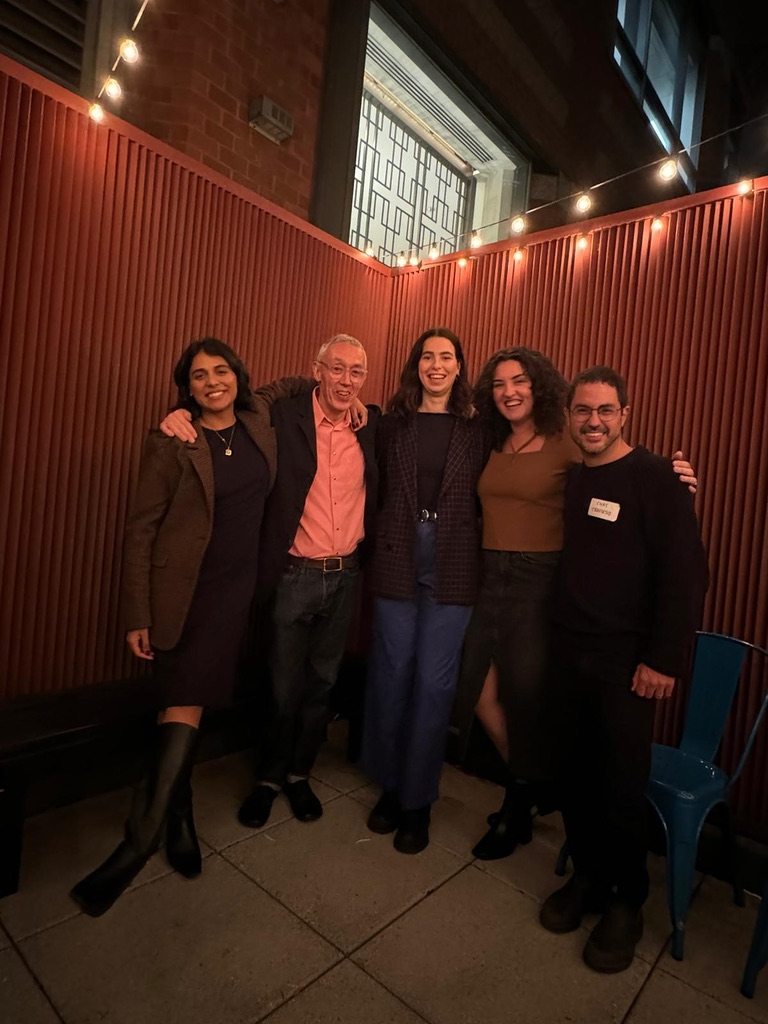
The event marked the fifth year of the graduate program, and was an evening of conversation, networking and exchanges about design as a tool for inquiry, critique, speculation, as well as communication. Attendees included alumni, academics, educators, Mason Gross Dean Jason Geary, faculty members Atif Akin, Sue Huang, and Jacqueline Thaw, along with current MFA Design students. The event opened with a welcome speech by MFA in Design Director Professor Gerry Beegan. He introduced the presenters and highlighted the purpose of the spotlight event: to celebrate the creative potential of design as a tool for critical engagement and change.
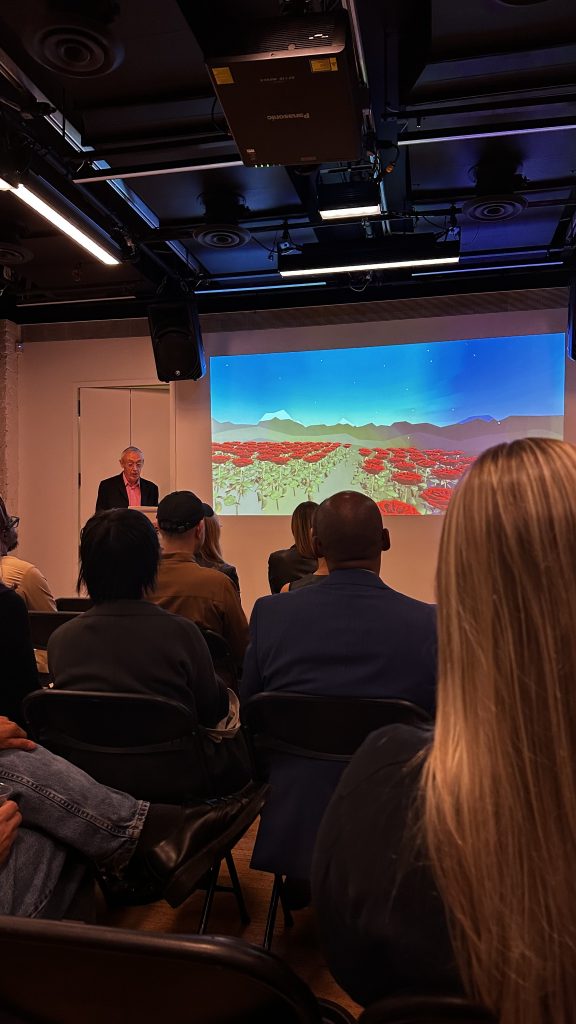
Chat Travieso began the presentations with a compelling talk on the social impact of design. As co-founder of Yeju & Chat, his work spans community-based urban interventions and public art, fostering inclusivity in cities. Chat examined the engagement of Bronx communities in the research process for a series of Boogie Down Booths produced over a five year period in partnership with the NYC Department of Transportation. The design team sought to address many of the concerns heard from local residents and business owners who participated in community workshops. The Booths provides seating and lighting, and involved music that originated in the Bronx (curated by Bronx Music Heritage Center). The music both celebrated the rich musical heritage of the borough and in some iterations covered up train noise. The various iterations of the Booths involved young and old residents in temporary social interventions driven by community needs. “I want my students to be civically engaged and be conscious of their impact on the world,” he shared, emphasizing the importance of civic awareness in design practice.
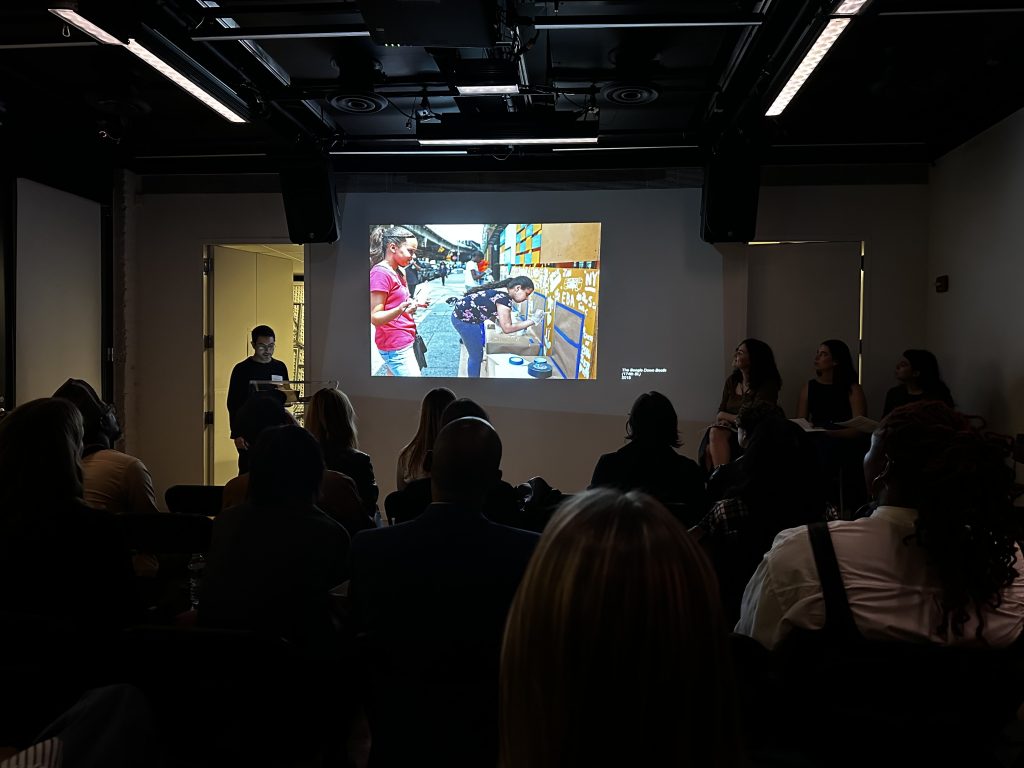
Rachel Herring followed with a reflective presentation on her practice as an educator, writer, and designer. Her work explores design ethics, techno-critique, and participatory research, inspired by her background as an art director in Manhattan’s beauty industry. Rachel discussed the collaborative research that resulted in her book Cellular Balance Workbook: Redesign Your Smartphone and Reclaim Your Time. The content and design of the workbook were informed by a series of workshops that included activities, surveys and exit interviews. Through this feedback Rachel realized the book was not just about our phones but about a reclamation of time in our lives. Her participants noted how spending less time on their phones made them more enamored by the physical world. They were generally more content because they weren’t constantly in the aestheticized worlds created in phones. Responding to these themes, her thesis exhibition 53 Days, created an immersive experience that activated the viewer’s sense of sight, sound, touch, and smell. In a world where everything is designed, she hopes to democratize design by creating products with the consumer and allowing them to customize products to best suit their individual needs. Design, she argued, is meant to be used, touched, and redesigned. Rachel’s mission to create customizable products and promote a slower, more intentional approach to life resonated deeply with the audience.
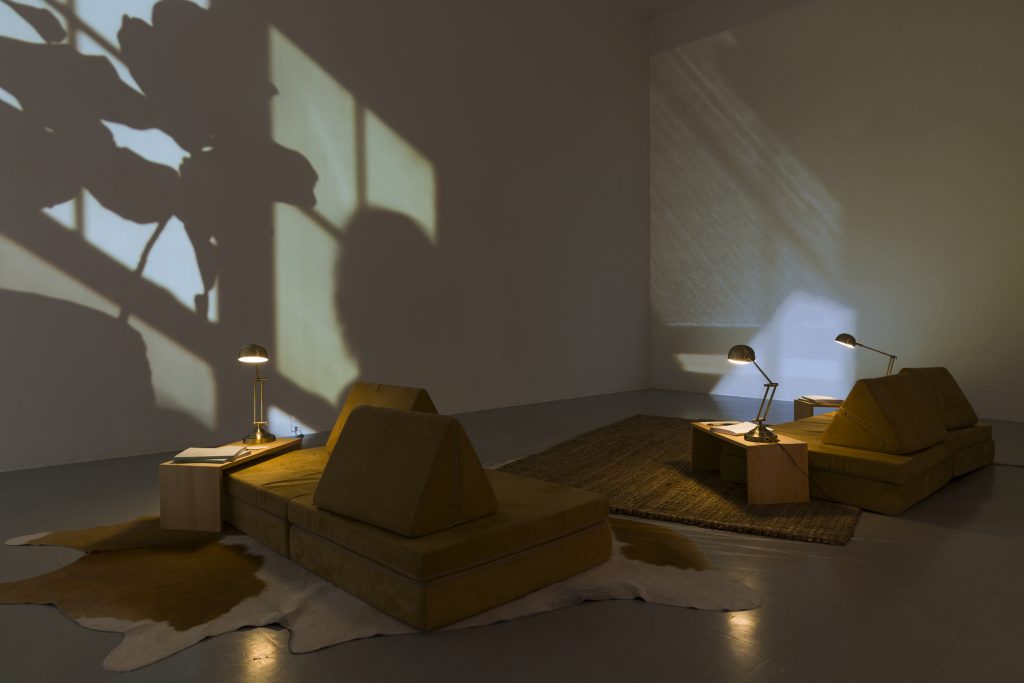
Corina Coughlan’s presentation delved into her exploration of feminist narratives, particularly around the female body and performance data. The talk traced her research journey at Rutgers which started with her using data to track her performance as an Varsity athlete. Over the course of the MFA, Corina expanded these limited data sets to data communication and storytelling that encompassed embodied subjectivity. Her approach was very much Informed by a data feminist approach, in which she used her personal data to question the value of qualitative data in sports performance. One important tool was journaling with allowed her to engage with the subjective factors in performance, listen to her body and adjust her performance and training. Her Training Diary for Menstruating Athletes opened up conversations on her rowing team between the rowers and eventually with the coaches. By humanizing data through visual storytelling and immersive experiences, Corina seeks to bridge the gap between data communication and personal narratives, adding emotional depth to abstract concepts.
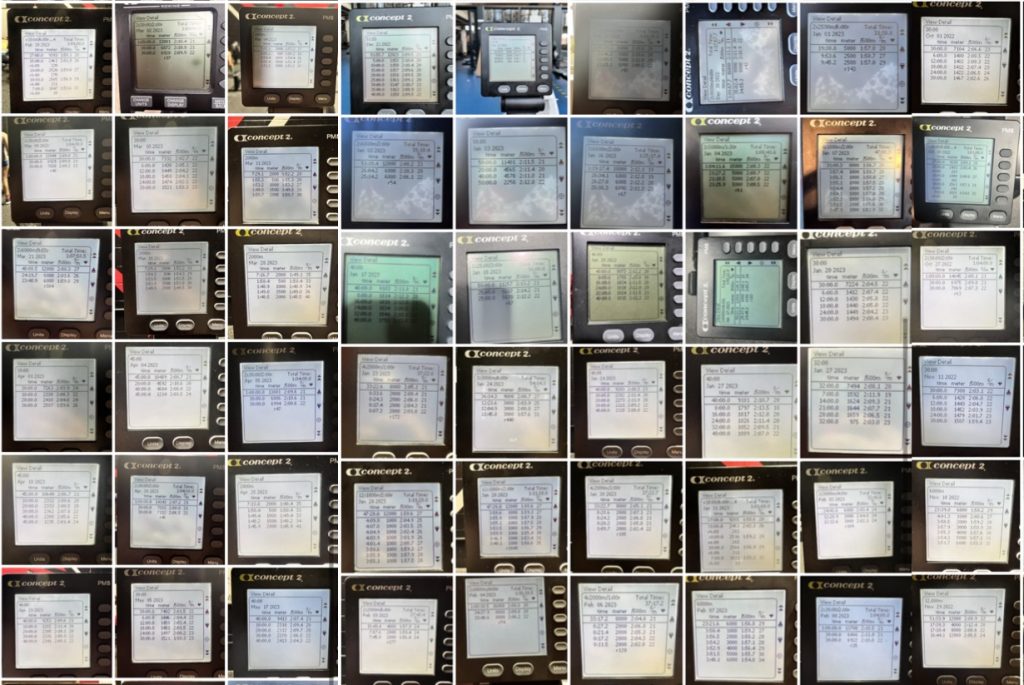
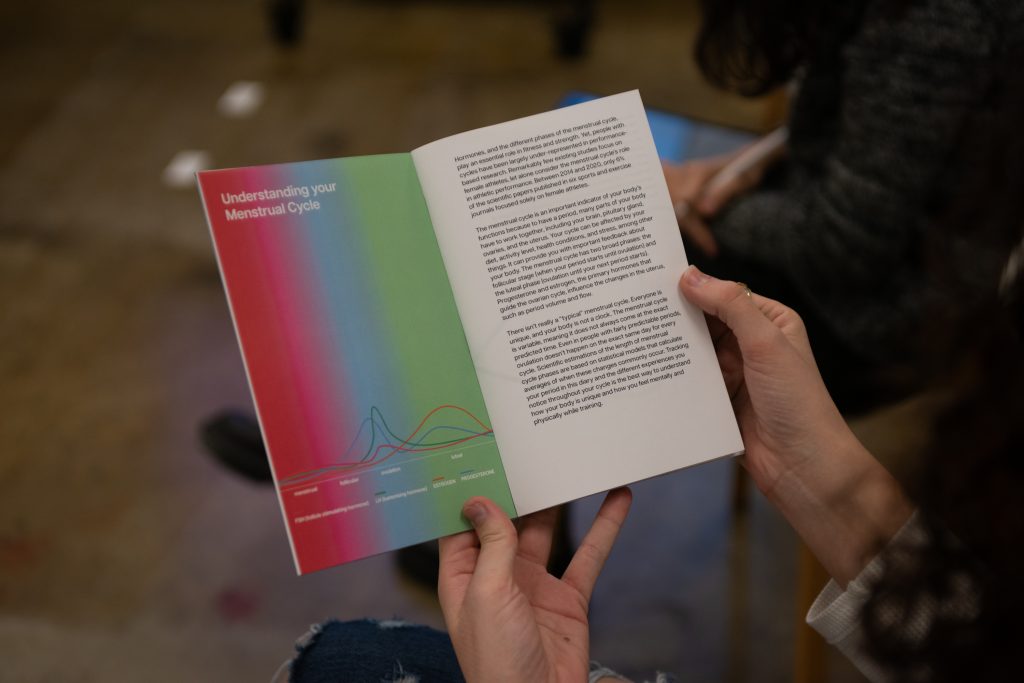
Lastly, Melisa Tekin presented her research on housing and placemaking. As the founder of Neighbors design studio and Assistant Professor of Visual Communications at SUNY Farmingdale, Melisa uses design to address critical housing challenges in New York City. Her work invites community participation and emphasizes collectivism in urban spaces, offering innovative solutions to issues of accessibility and transparency.
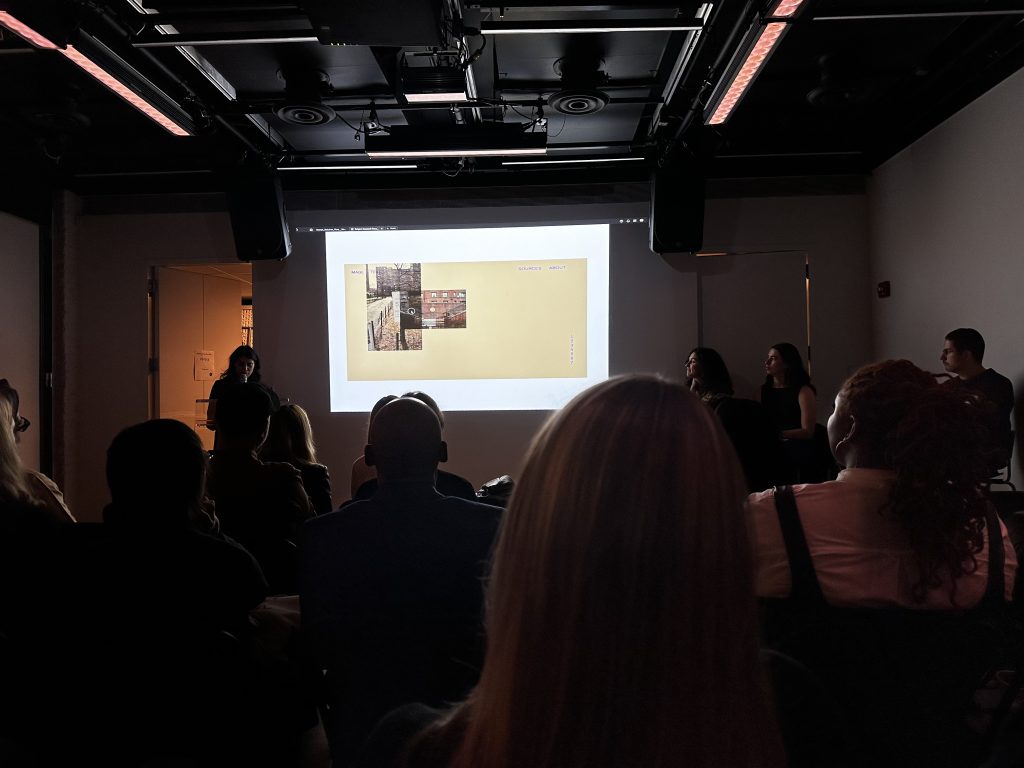
The evening concluded with a lively Q&A session, where attendees engaged with the speakers and shared reflections on the themes presented. Rachel’s focus on slowing down the pace of modern life particularly struck a chord, inspiring thoughtful discussions. The event wrapped up with warm conversations, leaving attendees energized by the impactful projects and meaningful dialogues that took place.
The Rutgers Design Research Spotlight demonstrated the depth and breadth of the MFA Design program, highlighting how design can address societal challenges, spark dialogue, and foster change.